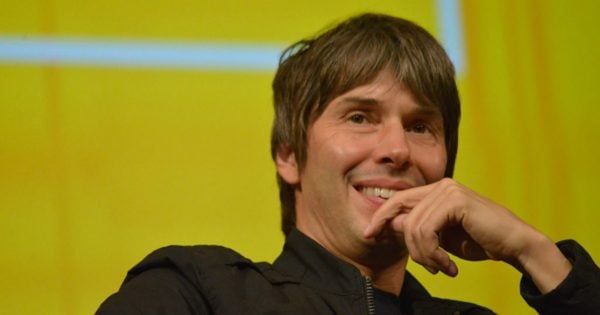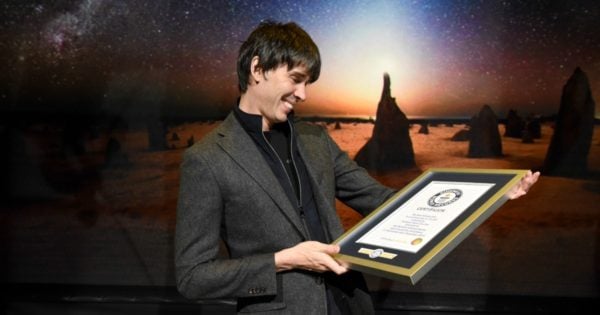It takes a special mind to be able to grasp and contribute to complex scientific concepts. But it takes an even more unique one to be able to make those concepts comprehensible and interesting to the rest of us.
Brian Cox has precisely that kind of mind.
A professor of particle physics, the British scientist has anchored several enormously popular television documentaries including Wonders of The Universe, earned a world record for the most tickets sold for a science tour (75,193) and is often credited with “making science sexy”.
It’s a badge he told Mamamia he’s happy to wear.
“If you look at the alternative to that, it’s to make science not sexy,” he laughed. “So if I were to ask myself, ‘Which one do you want to do?’, I’d rather make it sexy.”




Top Comments
Urgh.. the first line in this article contradicts Brian Cox's message, and is an example of what we science teachers are up against. It doesn't take a "special mind" to be able to grasp and contribute to science! We aren't born with a fixed intelligence. All children have natural curiosity and a fascination with exploring the world around us, and that is what science is at its core. We crush that natural aptitude because Aussie culture doesn't value maths and science, and anyone who has a crack at it is belittled for being a nerd! Sidenote: take your daughters to see Hidden Figures, it totally inspired my female Maths students.
I think that's a good point you raised. Does our culture value maths and science? I would say in the area I live in, probably not. I think people are discouraged because they're more difficult but they can be so so fun.
Hidden Figures is a really good movie.
Love this! I've been introducing my 4 year old daughter to basic 'science'. The reality is that I'm also learning it myself at the same time. I never had any exposure when I was younger so never developed an interest. By the time I hit biology, physics, etc in high school I was way too far behind to really bother trying to understand. Hopefully my girls get interested and I can keep up my learning under the guise of teaching them 😉😉